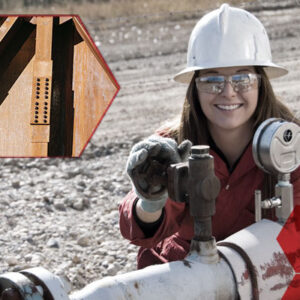Advanced Coatings for Oil and Gas Pipelines: Enhancing Durability and Efficiency
In the realm of oil and gas transportation, the use of advanced coatings plays a pivotal role in ensuring the longevity and reliability of pipelines. These coatings are engineered to withstand harsh environmental conditions and mitigate corrosion, thereby safeguarding the integrity of the infrastructure.
Importance of Coatings in Oil and Gas Pipelines
Advanced coatings for oil and gas pipelines are crucial for maintaining operational efficiency and safety. They provide a protective barrier that shields the pipelines from corrosive elements present in the transported fluids and the surrounding environment. Without adequate protection, pipelines are susceptible to corrosion, leading to structural degradation, leaks, and costly repairs.
Overview of Corrosion Challenges in the Industry
Corrosion remains one of the most significant challenges in the oil and gas industry. Factors such as moisture, chemicals in the transported fluids, soil conditions, and temperature fluctuations contribute to the degradation of pipeline materials over time. Advanced coatings serve as a proactive measure to combat these corrosion issues effectively.
Types of Advanced Coatings
Epoxy Coatings
Epoxy coatings are widely used in the oil and gas sector due to their exceptional adhesion and corrosion resistance properties. These coatings form a tough, protective film on the pipeline surface, shielding it from moisture and chemical exposure. They are particularly effective in offshore environments where pipelines are exposed to seawater and varying temperatures.
Properties and Applications
Advanced epoxy coatings for oil and gas pipelines exhibit high mechanical strength and durability, making them suitable for both new pipeline construction and maintenance projects. They adhere well to various substrates, including steel, and can be applied efficiently in factory settings or on-site.
Advantages over Traditional Coatings
Compared to traditional coatings, advanced epoxy coatings offer superior performance in terms of corrosion resistance and longevity. They require less frequent maintenance and provide extended protection against abrasion and mechanical damage, reducing lifecycle costs for pipeline operators.
Polyurethane Coatings
Polyurethane coatings are another category of advanced coatings for oil and gas pipelines, known for their flexibility and resilience. These coatings are applied as topcoats over epoxy primers to enhance durability and resistance to UV exposure and harsh weather conditions.
Features and Benefits
Polyurethane coatings excel in environments where flexibility is essential, such as pipelines subjected to ground movement or temperature variations. They maintain their integrity over a wide range of temperatures and offer excellent resistance to chemicals and abrasion, ensuring long-term protection of pipeline assets.
Suitable Environments and Conditions
Polyurethane coatings are ideal for onshore pipelines where exposure to sunlight, humidity, and mechanical stress is prevalent. Their ability to withstand thermal cycling and maintain adhesion under varying environmental conditions makes them a preferred choice for extending the service life of pipelines in challenging terrains.
Innovative Coating Technologies
Advanced Coatings for Oil and Gas Pipelines encompass a spectrum of sophisticated technologies engineered to bolster pipeline performance and longevity, ensuring reliability and efficiency in demanding operational conditions.
Fusion-Bonded Epoxy (FBE)
At the forefront of pipeline protection, Fusion-Bonded Epoxy (FBE) stands out as a proven and widely adopted coating solution. This technology involves applying a thermosetting epoxy powder to the preheated surface of the pipeline, where it melts and bonds to form a durable protective layer upon cooling.
- Process and Benefits: The application process begins with the electrostatic spraying of the FBE powder onto the preheated pipe surface, ensuring uniform coverage and adhesion. Subsequent heating causes the powder to melt and fuse into a solid coating that adheres tightly to the pipeline substrate. This fusion not only provides excellent corrosion resistance but also enhances mechanical strength, making the pipeline more resilient to impacts and abrasion.
- Case Studies and Performance Data: Extensive field studies and performance evaluations underscore the efficacy of FBE coatings in safeguarding pipelines against corrosion, even in harsh environments such as offshore platforms and corrosive soil conditions. Pipelines coated with FBE have demonstrated significantly lower corrosion rates and prolonged service life compared to uncoated or conventionally protected pipelines.
High-Performance Coatings
Beyond FBE, advancements in materials science have led to the development of high-performance coatings tailored to meet the stringent demands of modern oil and gas infrastructure.
- Nanotechnology Applications: Nanocoatings represent a frontier in pipeline protection, leveraging the unique properties of nanoparticles to enhance coating strength and impermeability. By incorporating nanomaterials into traditional coating formulations, manufacturers achieve coatings that exhibit exceptional resistance to corrosion, UV degradation, and chemical exposure. These coatings not only extend pipeline lifespan but also reduce maintenance requirements, thereby optimizing operational efficiency and lifecycle costs.
- Specialty Coatings for Extreme Conditions: In environments characterized by extreme temperatures, pressures, or aggressive chemicals, specialty coatings such as polyurethanes and polyureas offer unparalleled durability and resilience. Engineered to withstand severe operating conditions, these coatings provide robust protection against corrosion, mechanical wear, and thermal cycling, ensuring uninterrupted pipeline operation and minimal downtime.
Benefits of Advanced Coatings
The adoption of Advanced Coatings for Oil and Gas Pipelines yields significant benefits across operational, economic, and environmental dimensions, reinforcing their role as indispensable assets in the energy sector.
- Increased Pipeline Lifespan and Durability: By effectively mitigating corrosion and minimizing mechanical damage, advanced coatings substantially extend the operational lifespan of pipelines. This not only reduces the frequency of maintenance and replacement but also enhances overall asset reliability and performance.
- Cost-Effectiveness and Reduced Maintenance: While the initial investment in advanced coatings may be higher than traditional methods, the long-term cost savings are substantial. By reducing maintenance interventions and extending time between overhauls, operators benefit from lower lifecycle costs and improved financial predictability. Moreover, the enhanced durability and reliability of coated pipelines contribute to increased operational efficiency and reduced downtime, translating into improved productivity and profitability.
- Environmental and Safety Advantages: Advanced coatings play a pivotal role in enhancing environmental stewardship and safety within the oil and gas industry. By minimizing the risk of leaks, spills, and emissions associated with pipeline corrosion, these coatings help mitigate environmental impact and ensure compliance with stringent regulatory standards. Furthermore, the improved structural integrity of coated pipelines enhances safety for personnel and communities by reducing the likelihood of catastrophic failures and operational disruptions.
Importance of Inspection
In the domain of oil and gas pipelines, the application of Advanced Coatings for Oil and Gas Pipelines is pivotal for maintaining structural integrity and operational efficiency. These coatings serve as a barrier against corrosion, erosion, and external damage, thereby extending the lifespan of pipelines and reducing maintenance costs over time. However, their effectiveness hinges on rigorous inspection protocols.
Role of Coating Inspectors in Pipeline Integrity
Coating inspectors play a crucial role in ensuring the reliability and safety of pipeline infrastructure. Their expertise is instrumental in overseeing the application and maintenance of Advanced Coatings for Oil and Gas Pipelines. By conducting meticulous inspections throughout the coating lifecycle, inspectors identify potential issues early, preventing corrosion-related failures and ensuring compliance with industry standards.
Overview of CORCON – Institute of Corrosion’s Coating Inspector Course
The CORCON – Institute of Corrosion offers coating inspector programs designed specifically for coating inspectors in the oil and gas sector. Their course covers a comprehensive curriculum, including material selection, application techniques, surface preparation, inspection methodologies, and troubleshooting. This training equips inspectors with the knowledge and skills necessary to effectively manage and maintain Advanced Coatings for Oil and Gas Pipelines
Certification and Training Benefits
Obtaining certification from CORCON not only validates the competency of coating inspectors but also enhances their professional credentials within the industry. Certified inspectors demonstrate proficiency in handling Advanced Coatings for Oil and Gas Pipelines, ensuring adherence to quality standards and regulatory requirements. The rigorous training provided by CORCON fosters a thorough understanding of coating technologies and best practices, empowering inspectors to make informed decisions and contribute to the overall integrity and efficiency of pipeline operations.
Case Studies and Success Stories
Examples of Successful Coating Applications
Numerous case studies highlight the successful application of Advanced Coatings for Oil and Gas Pipelines in diverse operational environments. For instance, polymer-based coatings have been instrumental in protecting pipelines from harsh environmental conditions and chemical exposure, significantly extending their service life. Similarly, epoxy linings have proven effective in mitigating internal corrosion, thereby improving pipeline performance and reducing the risk of leaks or ruptures.
Real-World Impacts and Outcomes
The adoption of Advanced Coatings for Oil and Gas Pipelines has had profound real-world impacts on pipeline operations and environmental sustainability. By enhancing corrosion resistance and durability, these coatings contribute to the reliability and safety of energy transportation networks worldwide. Reduced maintenance requirements and improved operational efficiency translate into cost savings for pipeline operators while minimizing environmental footprint through enhanced leak prevention and containment measures.
FAQs: Frequently Asked Questions
What are advanced coatings in the context of oil and gas pipelines?
Advanced coatings are specialized protective layers applied to oil and gas pipelines to prevent corrosion and enhance durability. They are engineered to withstand harsh environmental conditions and the corrosive nature of transported fluids.
Why are coatings important for oil and gas pipelines?
Coatings are crucial because they provide a protective barrier that prevents corrosion, structural degradation, leaks, and costly repairs. This ensures the pipelines maintain operational efficiency and safety over time.
What challenges do oil and gas pipelines face regarding corrosion?
Pipelines face corrosion due to factors like moisture, chemicals in transported fluids, soil conditions, and temperature fluctuations. These elements can degrade pipeline materials, leading to potential failures without adequate protection.
What advantages do advanced epoxy coatings have over traditional coatings?
Advanced epoxy coatings offer superior corrosion resistance and longevity, requiring less maintenance and providing extended protection against abrasion and mechanical damage. This reduces lifecycle costs for pipeline operators.
How do polyurethane coatings benefit oil and gas pipelines?
Polyurethane coatings are flexible and resilient, suitable for environments with ground movement or temperature variations. They provide excellent resistance to chemicals and abrasion, ensuring long-term protection of pipelines.
Closing Insights
At CORCON – Institute of Corrosion, we recognize that advanced coatings are essential in bolstering the reliability, safety, and sustainability of oil and gas pipelines worldwide. Through our Coating Inspector Programs, we emphasize the importance of leveraging innovative technologies and stringent inspection protocols to effectively mitigate corrosion risks. By optimizing operational efficiency and extending the service life of critical infrastructure assets, industry stakeholders can ensure the integrity and resilience of pipeline networks. As global energy demands evolve, investing in robust coating solutions remains crucial for the reliable delivery of energy resources and the promotion of environmental stewardship for future generations.
Image Reference: Freepik
Disclaimer: All trademarks, logos, and brand names are the property of their respective owners. All company, product, and service names used in this website are for identification purposes only. Use of these names, trademarks, and brands does not imply endorsement.








